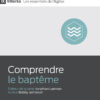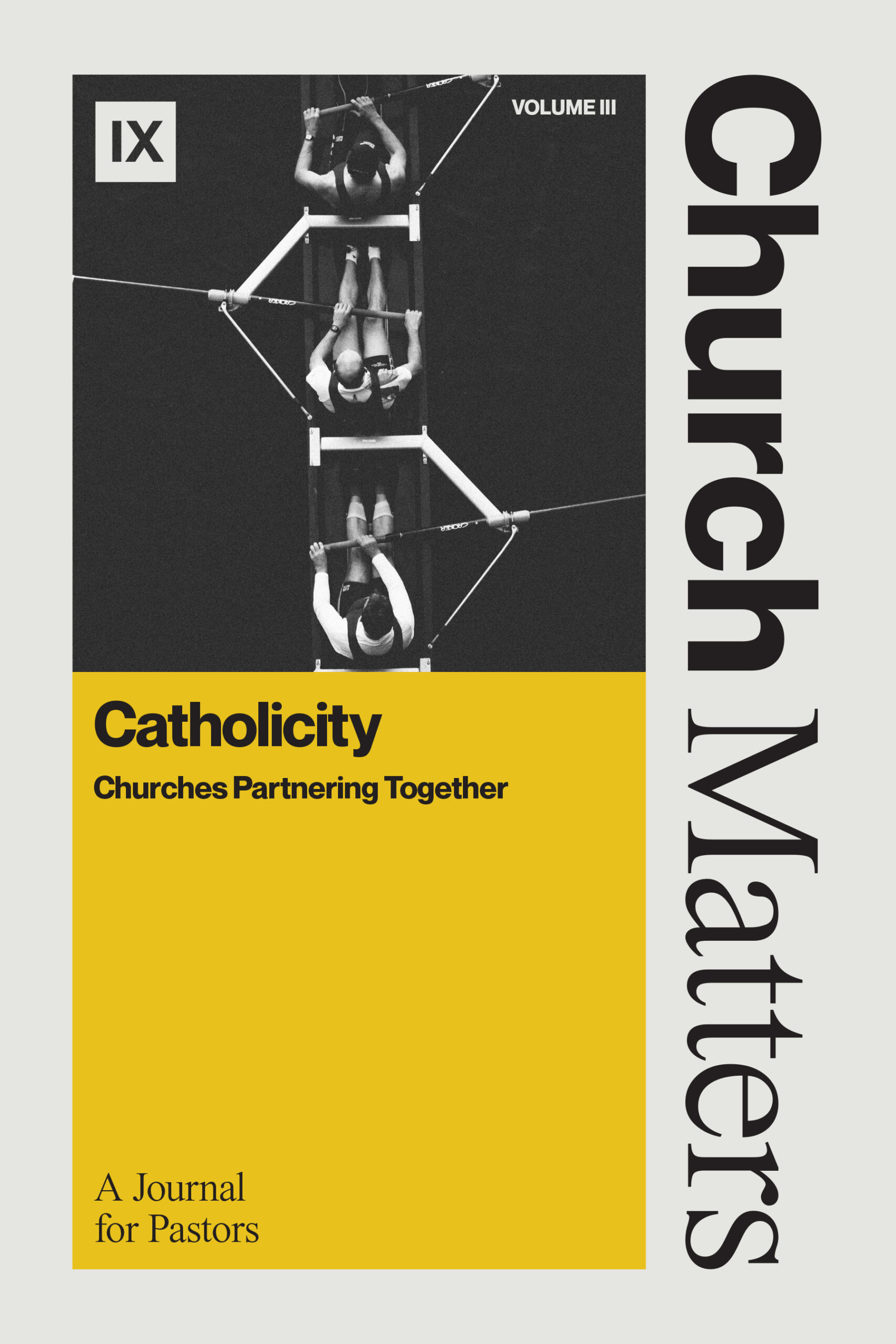Fundamentalism May Feel Safe, But It’s Shortsighted
As a new believer converted during the Jesus Movement, I soon found myself ushered into a narrow, flawed fundamentalism—the kind that held to orthodox theology but latched onto legalism as the means to sanctification.
It wasn’t my pastor or home church that led the charge. Neither knew what to do with the growing number of new believers. But a small group of Christians circled around me and others.
In part, I’m thankful that they read and taught us the Scriptures, prayed with us, and encouraged us to live for Christ as faithful witnesses. They corrected sin habits (much needed) and exhorted us to read the Word (also much needed).
But without realizing it, their fence full of dos and don’ts restrained the joyful, welcoming spirit that had been evident when we first experienced the power of the gospel (Gal. 5:1; Rom. 15:7). This ecclesiastically separatist movement, arising in early-to-mid 20th century, fed a pride which was at the root of an emerging anti-catholic spirit.
Even with the right stance on inerrancy and the call to holiness, instead of focusing on the fundamentals of the faith, they drew narrow boundaries around fellowship that are not found in Scripture. They point to the gospel for entry into the faith, but then they rigidly insist upon certain beliefs and practices for sanctification and association.
Fundamentalism comes in a variety of strains. My group of friends were initiated into the one enamored with a particular approach to dispensationalism and its eschatology as the proving grounds for biblical orthodoxy and genuine Christianity. Unless a person knew the right terms and followed the right diagrams, they were suspect, if not considered outside the faith. Instead of studying historical theology, we read Scofield’s notes. While I personally do not ascribe to it, dispensationalism and its premillennial view of eschatology were not the primary problem, but rather the way my friends used their eschatology as a test of orthodoxy and fellowship.
This variety of fundamentalism’s elevation of a tertiary issue to a primary one began to squeeze the life and joy out of my new faith in Christ. Due to its jaundiced views toward any church or pastor in the community who failed to tow its narrowly defined dispensationalism, I focused less on the power of the gospel to save sinners and more on its narrow bent of legalism. That one could be a Christian without embracing our particular pattern of daily Christian living seemed preposterous to me.
THE MOVE AWAY FROM FUNDAMENTALISM
What moved me away from the type of fundamentalism that had cradled me as a new Christian? It wasn’t a rejection of biblical inerrancy. If anything, my growing conviction of Scripture’s authority pushed me away.
Initially, the lack of joy in Christ sank me. So I turned to the Word. As I did, I found difficulty matching my faulty ideology together with a sound understanding and application of God’s Word. The narrow views of Scofield and some of his heirs seemed to validate the natural, carnal man. As I realized this, my confidence in dispensationalism eroded. I also discovered warm-hearted, passionate followers of Jesus who didn’t hold my narrow fundamentalism.
All this worked together to liberate me. As I read the Word, discovered the richness of church history, and started to think theologically, I realized that I had been acting as the judge and jury of other people, rather than as a humble, forgiven sinner. Simply put, my cocoon of fundamentalism did not stand up to scrutiny.
FUNDAMENTALISM AND CATHOLICITY
Among the more disturbing aspects of this narrow, fundamentalist ecclesiology is its failure to understand the church’s catholicity—that is, its “temporal universality” of belonging to the same body and adhering to the same gospel as the apostles.[1]
I remember attending the local Methodist church one Sunday as they recognized my Boy Scout Explorer Post. I felt uneasy being in a church that gave no attention to my brand of Christianity. When it came time to recite the Apostles’ Creed, something I’d never done before, I smugly skipped, “I believe . . . in the holy catholic church.” How could one acknowledge the Catholic Church in a Protestant worship service!
Of course, if I spent more time studying church history, then I would have gladly confessed the church as catholic.
This is a small story, but it exposes something lethal: a growing narrowness that shuts out fellow believers. It admitted no one else to the kingdom.
By the grace of God, however, liberation came by the Spirit’s work through the Word.
WHY FUNDAMENTALISM IS NOT A SAFE HARBOR
Despite good intentions to hold to the faith, why is this legalistic strain of fundamentalism not a safe harbor when it comes to the Bible’s teaching on the church?
First, a narrow fundamentalism adopts an individualistic faith while neglecting the corporate emphases found in Exodus 9:1–5, Ephesians 4–5, 1 Peter 2:1–10, and 1 Corinthians 12.
The priesthood of all believers doesn’t refer only to me, or only to the believers in my church, or only to the believers who share my view on second- and third-level doctrines. As Michael Reeves observes, such a posture is “unevangelical individualism.” It fails to value the unity of the gospel found in the church’s creeds and theologians. Creeds and theologians don’t replace Scripture, he adds, “but it would be decidedly foolish to ignore them and fail to heed their wisdom. . . . Without a keen awareness of where the church has always stood, the mood of our age—and how we might succumb to it—will be far harder to see.”[2] This narrow fundamentalism blinds us to healthy catholicity and theological error due to pride in a sterile, tightly-packaged belief system.
Second, restrictive fundamentalism elevates “secondary matters to an unwarranted primacy,” to borrow a phrase from Albert Mohler.
It is “illustrated most centrally in the elevation of dispensational eschatology to a place of first-order significance.”[3] This consequence affects catholicity too. The rich diversity of the body of Christ gets rejected by making secondary issues of “first-order significance.”
Third, a legalistic fundamentalism makes secondary and tertiary issues essential to relationship with God and authenticity as the church.
Anything that subverts God’s gift of grace and perseverance through Christ, whether intentionally or not, presents a significant danger to the church. This subversion fails to acknowledge that the church “stands by God’s election,” as Calvin wrote, and is “joined to the steadfastness of Christ, who will no more allow his believers to be estranged from him than that his members be rent and torn asunder.”[4] This bent of fundamentalism moors the church to faulty berths, allowing churches and individuals to drift into needless divisions that hinder the rich fellowship and gospel partnership that could be theirs.
In my early days, some teachers equated one’s standing with God to one’s eschatological position. Not even Scofield would have countenanced this idea. In fact, I should note that I have close friends and ministry brothers who hold to some forms of dispensational eschatology who would never use their convictions as a gatekeeper for Christian fellowship.
Yet that’s the problem with certain strains of fundamentalism. Its adherents tend to go further than their instructors. The self-righteousness it generates clouds the mind to humility and grace, in turn distancing Christians from the sweetness of fellowship with Christ and his multi-ethnic, multi-generational, and multi-cultural church. Granted, it’s not just in fundamentalism that we find restrictive gatekeeping to the faith. It can creep into reformed and charismatic circles too. Paul counters this logic in Galatians 3:26–29:
For in Christ Jesus you are all sons of God, through faith. For as many of you as were baptized into Christ have put on Christ. There is neither Jew nor Greek, there is neither slave nor free, there is no male and female, for you are all one in Christ Jesus. And if you are Christ’s, then you are Abraham’s offspring, heirs according to promise.
Notice that Paul doesn’t say anything about narrow separatism, eschatology, or any other second- or third-tier doctrine as the mirror of the soul. “In Christ alone” marks the boundaries of true catholicity. Calvin corrects the flawed fundamentalist spirit of separatism when he writes,
For here we are not bidden to distinguish between reprobate and elect—that is for God alone, not for us, to do—but to establish with certainty in our hearts that all those who, by the kindness of God the Father, through the working of the Holy Spirit, have entered into fellowship with Christ, are set apart as God’s property and personal possession; and that when we are of their number we share that great grace” (italics added).[5]
In that spirit, I thankfully have warm-hearted fellowship and close ministry partnerships with people I differ with on issues related to dispensationalism, eschatology, and other second- and third-tier issues. I share fellowship with those preferring the label « fundamentalist » due to our common love of Christ, the gospel, and God’s Word. These eschatological and other non-first-tier convictions should not separate us.
But when any tertiary theological conviction is elevated to a place of primacy, the poisonous air of narrowed fundamentalism has entered. Those who are in Christ, even when secondary and tertiary issues differ, are God’s gift to one another in the “one, holy, catholic, and apostolic church.”
* * * * *
Editor’s Note: In response to helpful feedback, this article has been significantly updated.
[1] Mark Dever, “A Catholic Church,” in Richard Phillips, Philip Ryken, and Mark Dever, The Church: One, Holy, Catholic, and Apostolic, 67–92.
[2] Michael Reeves, Gospel People, 115.
[3] Albert Mohler, “Reformist Evangelicalism: A Center Without a Circumference,” in Michael S. Horton, A Confessing Theology for Postmodern Times, 132.f
[4] John Calvin, Calvin’s Institutes, 4.1.3.
[5] John Calvin, Calvin’s Institutes, 4.1.3.
Related Multimedia











